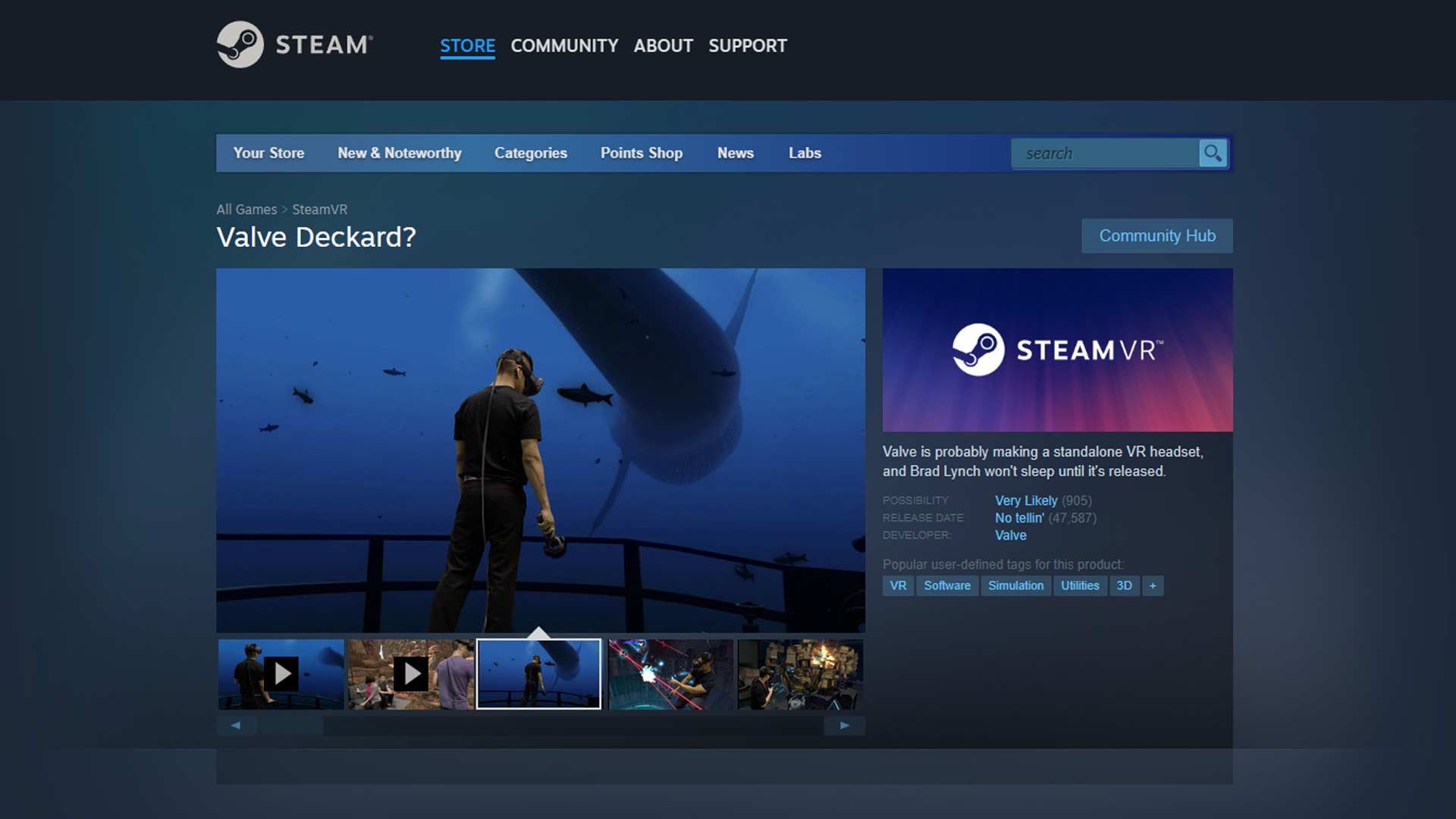Valve is a notorious black box when it comes to basically everything. A recent update to Steam client for VR though suggests the company is still working behind the scenes on what appears to be its long-awaited standalone VR headset.
As revealed by tech analyst and consummate Steam data miner Brad Lynch, a recent update to Steam’s client included a number of VR-specific strings related to batteries, which seems to support the idea that Valve is currently readying the platform for some sort of standalone VR headset.

The update also included mention of new UI elements, icons, and animations added to the Steam Client for VR—something it probably wouldn’t do for a competitor’s headset, like Meta’s soon-to-release Quest 3 standalone.
Meanwhile, South Korean’s National Radio Research Agency (RAA) recently certified a “low-power wireless device” from Valve, also spotted by Lynch. It’s still too early to say whether the device in question is actually a standalone VR headset—the radio certification only mentions it uses 5 GHz wireless—however headsets like Meta Quest 2 are equally as vague when it comes to RAA listings.
Granted, Valve hasn’t come out and said it’s developing a standalone VR headset yet, although with mounting competition from Apple and Meta, 2024 may be the year we finally see the ‘Index of standalone VR’ come to the forefront. Valve Index has widely been regarded as the ‘best fit’ PC VR headset, owing to its excellent quality, performance, and comfort—something we called “the enthusiast’s choice” in our full review of the headset back when it launched in 2019.
But it hasn’t been entirely mum either. In early 2022, Valve chief Gabe Newell called its handheld gaming PC platform Steam Deck “a steppingstone” to standalone VR hardware, nothing that Steam Deck represented “battery-capable, high-performance horsepower that eventually you could use in VR applications as well.”
– – — – –
While a capable, high-end standalone VR headset from Valve is certainly something to salivate over, a few big questions remain: What will happen when Valve opens Steam up to standalone VR content? How would the largely Meta-heavy ecosystem react as Steam becomes a new outlet for VR games? And what if Valve’s headset is instead capable of playing some subsection of standard PC VR content? We don’t know the answer to any of these questions, but with Valve’s continued interest in VR, we’re still pretty hopeful to find out.
,
